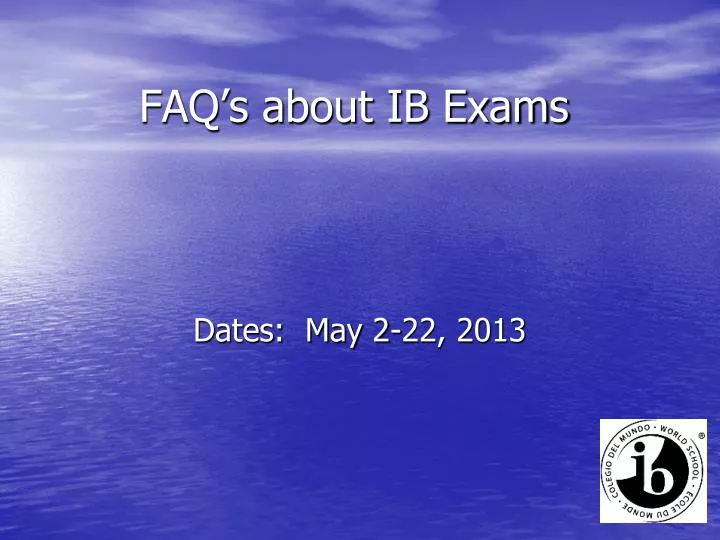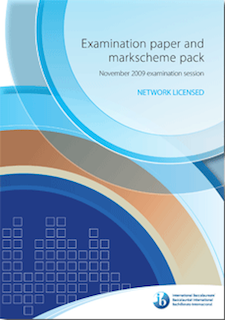

However, if you want to get into a top university, you must score more than 24 points. Students are required to achieve 24 marks out of 45 in order to qualify the IB exams. There are additional 3 points for completing TOK and EE elements which makes it to a total of 45 points. Within each component there is a variety of assessment tasks, which may include:įor each subject, students are given a score out of 7. Tasks that are marked by teachers and moderated by examiners can include:

These papers are graded by independent examiners.Įxamples of tasks that are sent directly to examiners to be marked are: Additionally, a moderator is appointed by IB who accounts for 5% of the internal assessments.Įxternal Assessment – the external assessments are carried out through traditional exams involving extended response questions, multiple choice questions, short answer questions, and data analyses questions. Internal Assessment – it is conducted by the teachers where they assess a student’s performance based on their laboratory work, presentations, and written work. The evaluation of IB exams is divided into two parts – internal assessment and external assessment. For 2019, the exams are scheduled from May 1, 2019, to May 24, 2019. The IB exams are generally held in the month of May. Then, accordingly, you can allocate time to each of the topics.ĪLSO READ: ATAR Details 2019 – Know Eligibility, Courses, Calculation IB Assessment Process
#IB FREE EXAMS CODE#
You may even color code the syllabus to mark the topics you understand completely, partially or not at all. Hence, not only in the beginning but keep your subject syllabus with you every time you study. You must have covered every aspect of the IB program subjects because there can be questions from any topic. Extended Essay (EE) – students have to conduct independent research and write a paper of around 4000 words.īefore you begin your preparations just make sure you know the syllabus thoroughly. it is not assessed formally however, students have to demonstrate and provide evidence of achieving the outcomes of the CAS.ģ. They have to perform the activities related to arts and sports and provide a voluntary service.

Creativity, Activity, Service (CAS) – this component is all about teaching the life skills to the students. Students have to give a presentation and an essay of around 1600 words during the assessment of this component.Ģ. It allows them to think deeply about the basic things in life and examine critically. Theory of Knowledge (TOK) – students have to question their knowledge, assumptions, and biases regarding the world. However, there will be supervisors to guide them.ġ. Information Technology in a global societyĪlong with the 6 subjects, there are 3 core components of the IB curriculum that the students have to complete independently. Language A: language and literature (SL/HL) Out of the 6 courses students have to take up 6 different subjects (3-4 higher level (HL) subjects and a minimum of 3 standard level subjects (SL)). The IB Diploma Programme comprises 6 subjects/ courses/ groups as shown in the table below.

The IB Diploma Programme is a two years course taken in the last two years of high school by students so that they can apply to a university for higher studies. There are four programs catering to students of different ages namely Primary Year Programme, Middle Years Programme, Diploma Programme, and Career-Related Programme. The International Baccalaureate or IB offers high-quality education to students from ages 3 to 19, enabling them to think independently, logically and critically. What is the International Baccalaureate(IB)?


 0 kommentar(er)
0 kommentar(er)
